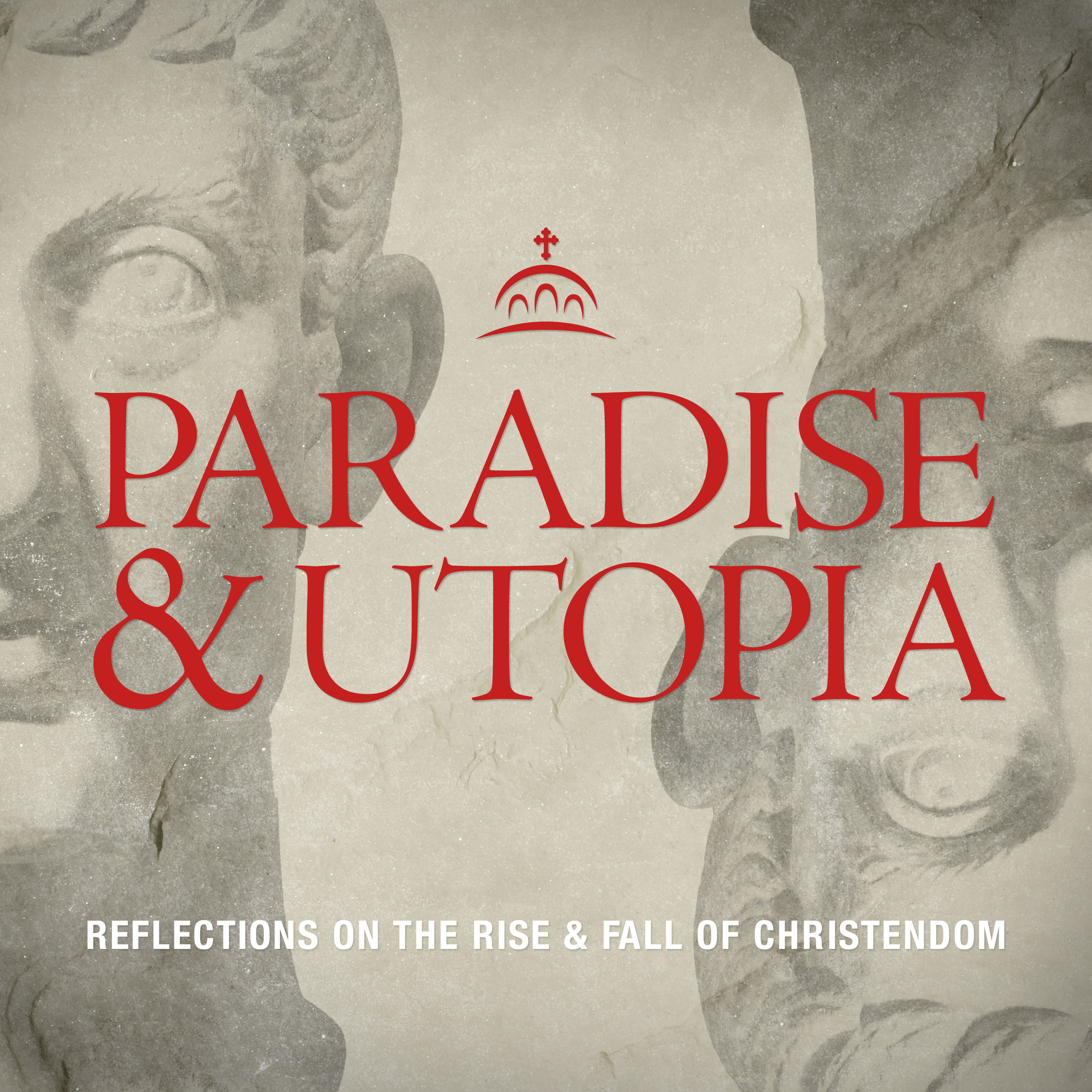

Paradise and Utopia
Fr. John Strickland, and Ancient Faith Ministries
Reflections on the Rise and Fall of Christendom
Episodes
Mentioned books

Mar 10, 2023 • 0sec
Solving Post-Christian Christendom's Transcendence Problem III: The Architects of Nationalist Ideolo
Fr. John Strickland concludes his account of the origins of modern political ideology with the rise of nationalism, a force that not only proved to be a counterfeit to traditional Christianity, but the cause of one of utopian Christendom's greatest tragedies.

Mar 3, 2023 • 0sec
Solving Post-Christian Christendom's Transcendence Problem II: The Architects of Socialist Ideology.
Fr. John Strickland continues his account of the rise of secular ideology with a presentation on the Russian intelligentsia and the case of Karl Marx.

Feb 24, 2023 • 0sec
Solving Post-Christian Christendom's Transcendence Problem I: The Architects of Liberal Ideology
In this long-delayed episode (due to work on The Age of Nihilism, available at store.ancientfaith.com/the-age-of-nihilism-christendom-from-the-great-war-to-the-culture-wars), Father John presents the historical origins of liberalism as a modern secular ideology. Atheistic philosophers like Auguste Comte and John Stuart Mill provided the philosophical basis for hope in a secular "kingdom of posterity."

Mar 25, 2022 • 0sec
Age of Utopia Released
Fr. John Strickland announces the release of the third volume of his book series. The Age of Utopia: Christendom from the Renaissance to the Russian Revolution (store.ancientfaith.com/the-age-of-utopia) is a companion to the podcast, but, as he notes, contains quite a bit of material that is unique. Here he summarizes some of its content.

Nov 12, 2021 • 0sec
The Forest and Its Trees: An Answer to Cyril Jenkins, Part II
In this second half of his response to a recent review of his books, Fr. John Strickland discusses his use of scholarly sources (The Age of Division required more than three hundred and fifty of them). He also reflects on how criticisms of his sources and his arguments may have been provoked by the unconventional way in which he tells the story of Christendom.

Nov 12, 2021 • 0sec
Monographs and Metanarratives: An Answer to Cyril Jenkins, Part I
In this special edition of Paradise and Utopia, Fr. John Strickland responds to a recent review of the first two volumes of his book series. In it, he notes the failure to consider the books on their own terms. He uses the opportunity to elaborate what he considers a healthy vision of Christian historiography, one that supports what many consider the need for a "re-enchantment" of modern culture.

Oct 28, 2021 • 0sec
When the Romantic Agony Became Personal: The Music of Peter Ilyich Tchaikovsky
Most Americans know Tchaikovsky as the composer of the delightful dances contained within the Nutcracker Ballet. As Fr. John Strickland shows, however, there is much more to be heard in their melodies, and little that was delightful about the emotionally agonized life behind them. Using selections from a variety of works, he explores how the romantic agony came for Tchaikovsky in his boyhood and thereafter never departed. Special attention is given to an analysis of the famous Sixth Symphony, nicknamed Pathetique. First performed just days before the composer's abrupt death, the work brings the generation of the romantics to a heart-rending and emblematic conclusion.

Oct 18, 2021 • 0sec
Secular Glory and Spiritual Agony in the Music of the Great Romantics
What was the genius of classical music during its nineteenth-century golden age? According to Fr. John Strickland, it was an effort to rescue Christendom's transformational imperative in an age when secularization threatened to sever earth from heaven. No longer influenced by traditional Christianity, great composers like Beethoven exaggerated earthly passions (especially sexual love) to communicate the West's primordial desire for transcendence. But the emotionalism that resulted threatened to take the floor out from underneath them. This episode concludes by analyzing famous works by Schubert and Berlioz which show how transcendence gave way to descent, and how utopian hopes plunged into irreversible spiritual agony.

Oct 5, 2021 • 0sec
Counterfeit Communion
The early nineteenth-century romantics pioneered a new way of seeking personal transformation. Following a century in which deism desecrated the world, separating heaven and earth, they wanted to re-enchant the West. But by ignoring traditional Christianity and looking instead to the "God substitutes" of philosophical idealism, they only succeeded in creating a counterfeit experience of transcendent communion.

Sep 26, 2021 • 0sec
A New Vision of Western History during the So-Called Enlightenment
In this reflection on an emerging post-Christian Christendom, Fr. John Strickland discusses two ways in which eighteenth-century philosophes—from Voltaire to Thomas Jefferson—worked to subvert the paradisiacal culture of the old Christendom. He explores their use of photic imagery such as "enlightenment" and their introduction of the tripartite utopian model of history consisting of ancient, medieval, and modern periods. He concludes with a brief description of Edward Gibbon's famous and influential work The Decline and Fall of the Roman Empire.


